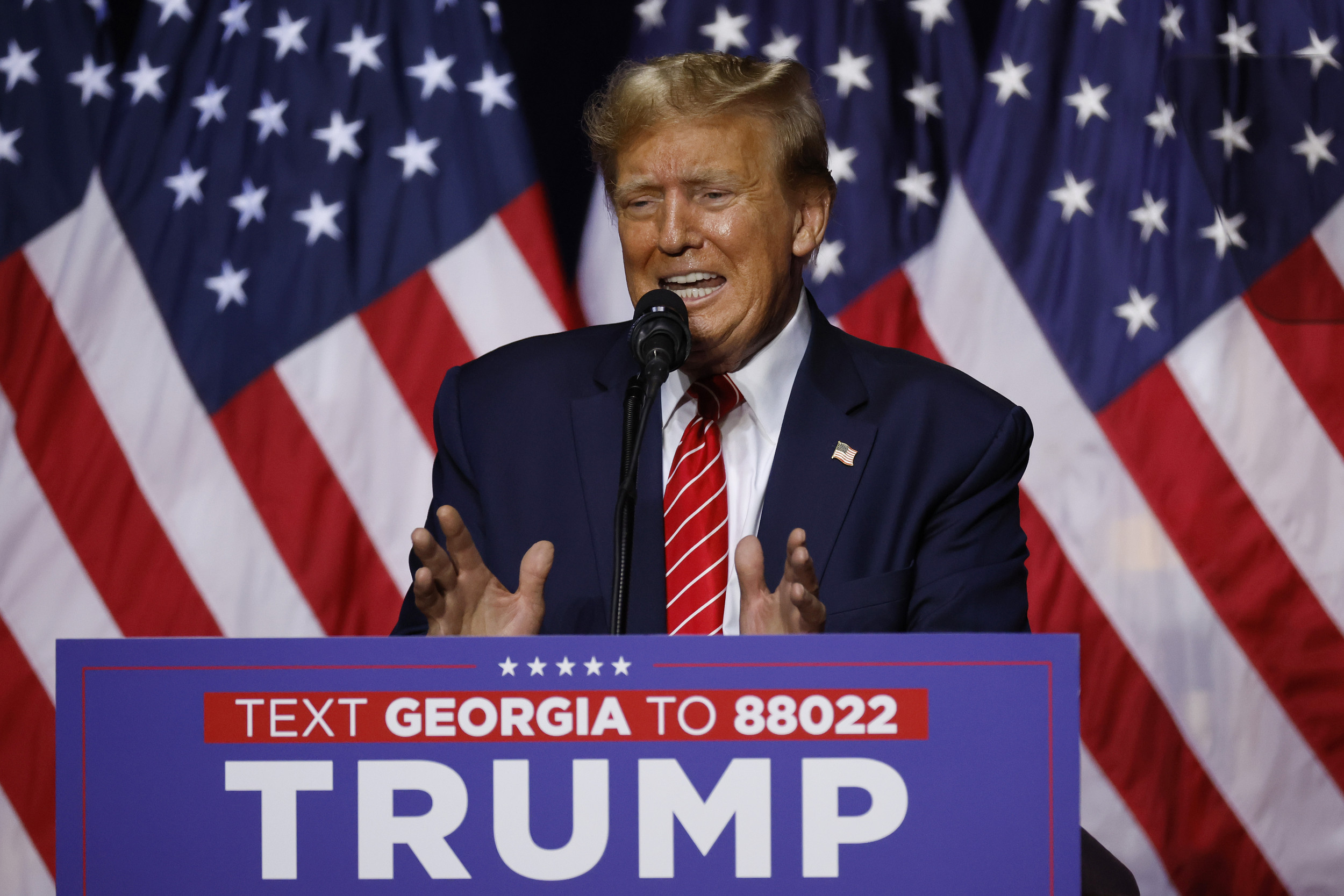- cross-posted to:
- [email protected]
- [email protected]
- cross-posted to:
- [email protected]
- [email protected]
Donald Trump has multiple loans on his properties amounting to at least $200 million, which may devalue their worth and make it less likely that they will be seized to recuperate the costs of his legal fines.
The former president has until March 25 to come up with the bond amount or New York Attorney Letitia James could begin seizing some of his assets and properties after Judge Arthur Engoron ruled that the former president will have to pay roughly $355 million in penalties for fraud. The February ruling stated that Trump and top executives at The Trump Organization inflated the value of his assets to obtain more favorable terms from lenders and insurers.
The lawsuit, brought by James, initially sought $250 million in damages, but she increased this figure to $370 million, plus interest. With interest, the payment exceeds $464 million.



Is that accurate? I asked this question yesterday and got several responses saying the exact opposite.
That the government would seize a property, quickly sell it, and then pay off any outstanding liens. Then whatever was left over got applied to the $464M and then the courts keep seizing, selling and paying until they achieved the full amount.
Otherwise if you seized someone’s full collateral for a bunch of loans, they no longer have any incentive to pay those loans if they are already close to bankruptcy and there’s nothing left for the creditors to seize.
Edit: had troubling finding an answer but this is from Tennessee and about cars. It says the government can either send the asset to lien holder or pay the lien holder
So I dug into it a little deeper and it looks like the answer is kind of. Government still gets first crack at the value of whatever the property is, but leftover funds may be distributed to other creditors. It also depends on the kind of loan in question as to whether the government will repay them or if they have to sue Trump.
Overall the process works much like bankruptcy does, creditors get ranked based on various criteria (generally the more money you’re owed the higher you’re ranked) and higher priority creditors get first dibs and whatever is left over goes to the next creditor in line. Government pretty much always goes first. Once they’ve gotten their money next would be anyone who has an actual lien on the property. It’s also possible to have given a loan whose terms are tied to the property but doesn’t result in an actual lien being issued for it. Those creditors are just fucked in this case. They’ll have to chase Trump through court to get their money back as it’s essentially a contract dispute at that point.
What’s highly likely to happen is we’ll see a panic recall on any outstanding loans Trump has as nobody wants to be on the bottom of the pile fighting for scraps after the financial corpse of Trumps assets has been picked over.
There’s a reason no banks have been willing to loan to him for 30 years, and when he went looking for a bond the ones who were willing to give him one were demanding double the amount in property as collateral. They wanted to make sure that there would be enough left over for them to get their money back after the government took their cut.
As for what you cited, that’s for civil asset forfeiture which is a little different. In that case the government isn’t treated as a creditor since you don’t owe them anything, they’re just straight stealing your property. In the case of property with a lien on it they repay the lien holder essentially the full value of the lien as there’s no valid claim to those funds by the government.
At the end of the day the government will just keep seizing property until both they and all Trumps creditors are paid off or until there’s no more property to seize whichever comes first. What’s definitely not going to happen is the government goes “This property isn’t worth it because it has too many loans on it, we’ll just let Trump keep it”.